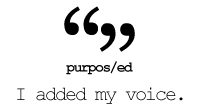This is one of my favourite TED Talks. It gets to the heart (IMO) of one of the biggest problems (and challenges) we currently face in education.
We know, deep down, that the way to succeed in life is to make mistakes and learn from them. Yet, we continue to facilitate a system that rewards students who never make mistakes, and teaches that those who do are lazy and unintelligent?
Moreover, we try to make students feel as thought they are right, even when we (and they) know they are wrong?
In the short term, this may help to boost a student’s self-esteem. However, in the long term, it teaches them to be afraid of failure; creating a climate of fear.
And fear is the enemy of learning.
Students find themselves paralysed, unable to commit pen to paper, unless they have received their latest hit of positive reinforcement from their teacher.
Instead, we need to create a climate in which students are not afraid of failure.
It’s time we let students err; teaching them to acknowledge their mistakes and learn from them.
It’s time we encouraged them to say: “I don’t know, maybe I’m wrong?”
